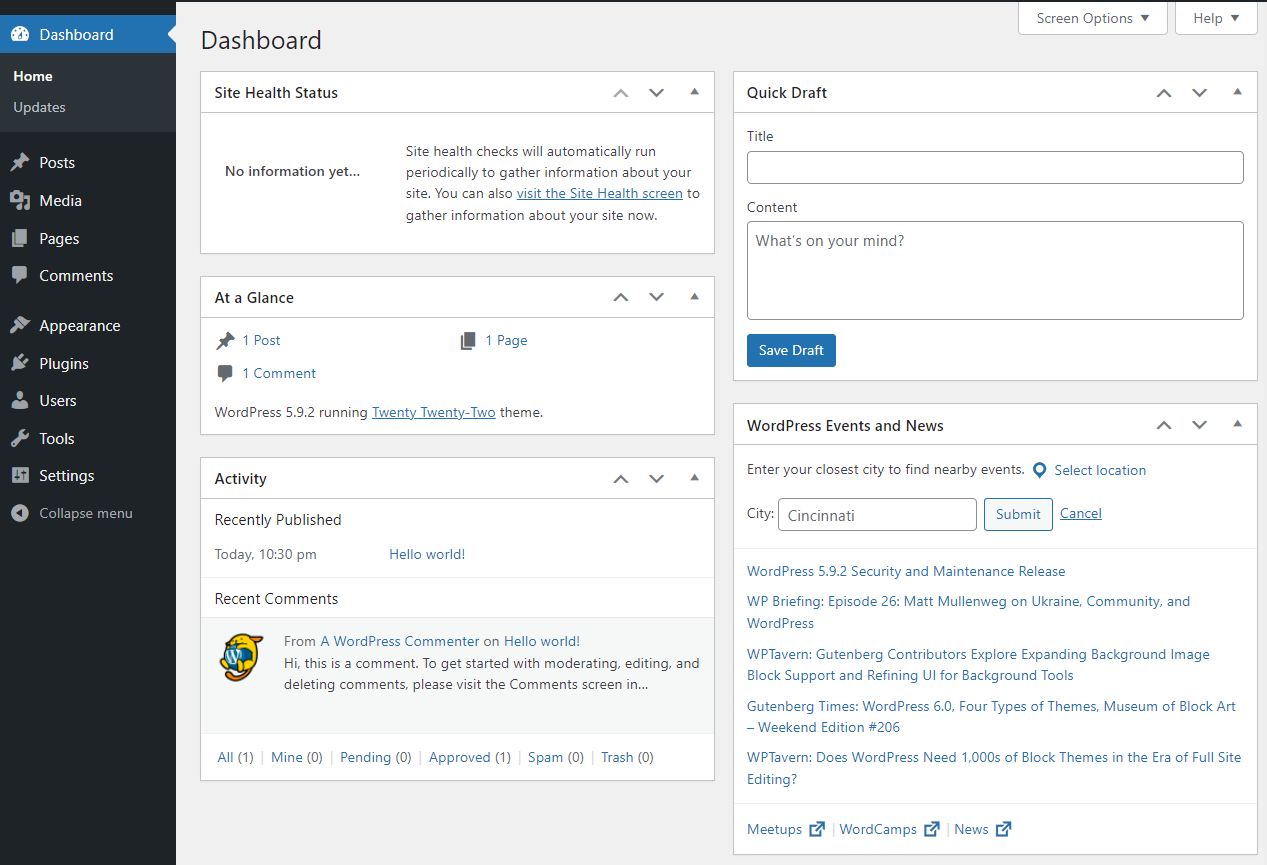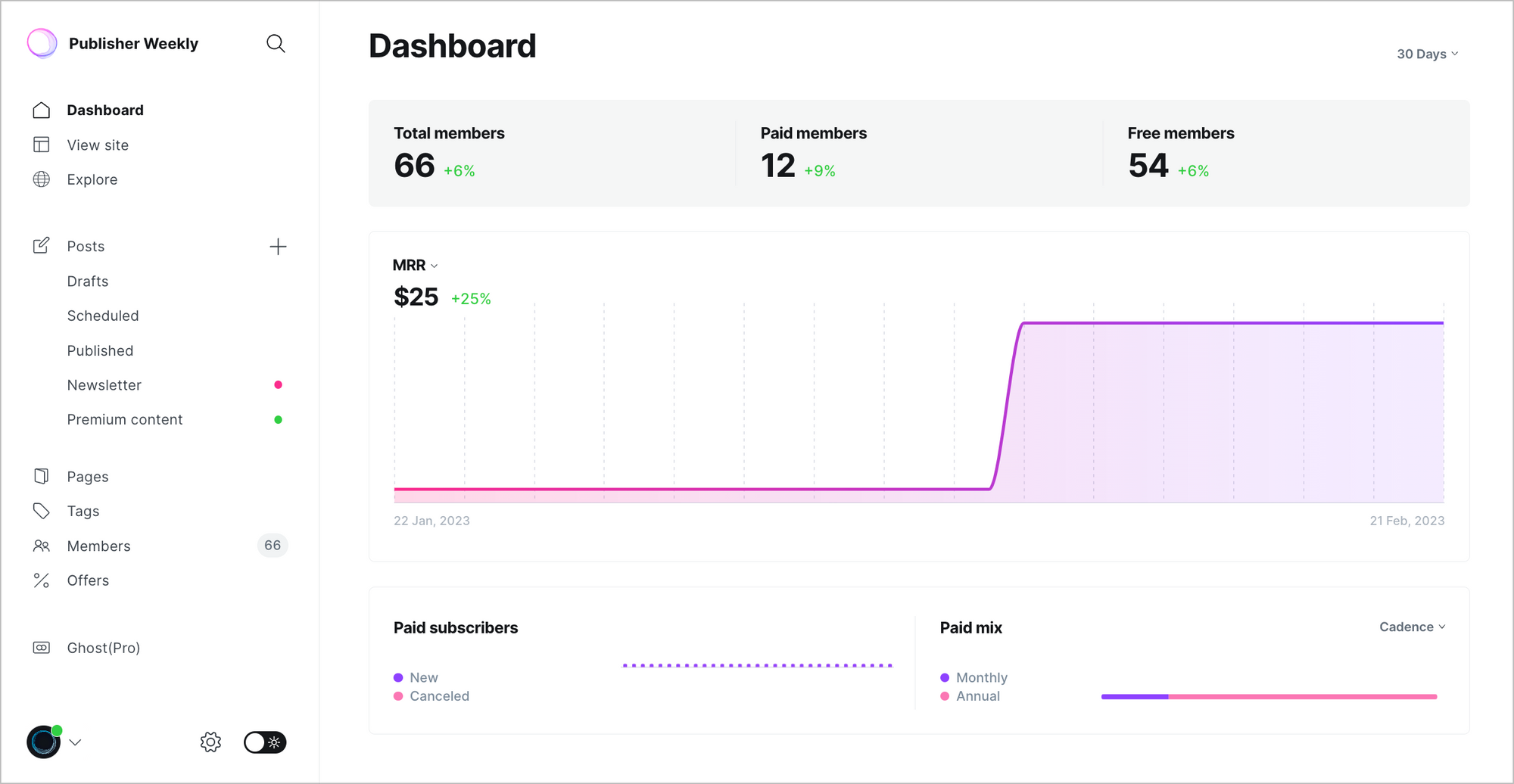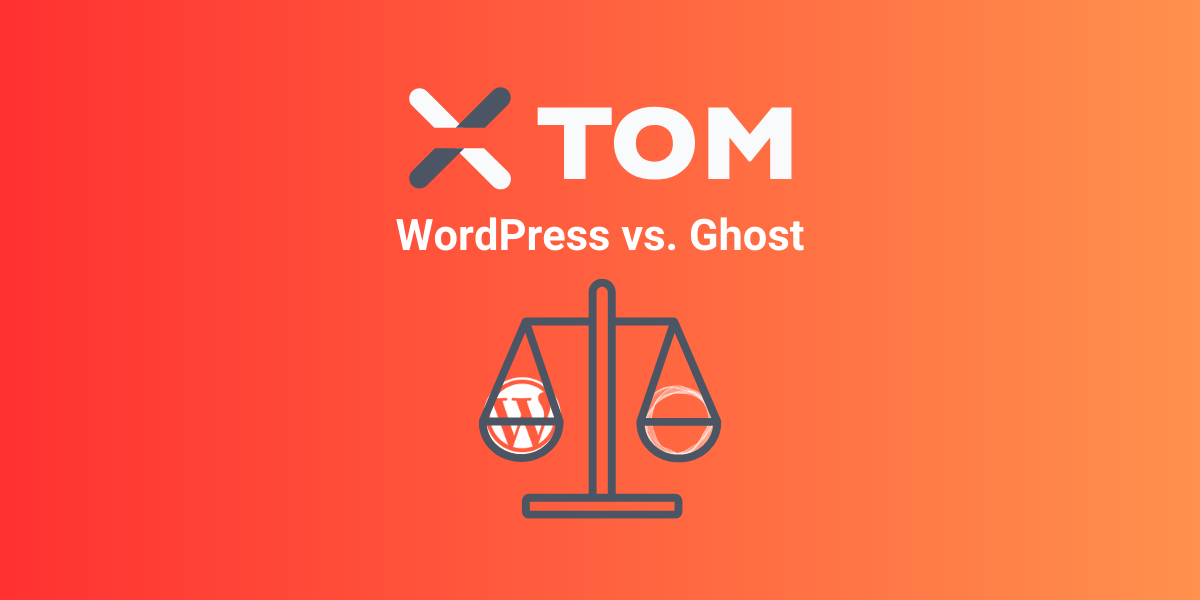According to W3Techs, WordPress currently powers 43% of all websites. That's not a small percentage.
That's essentially saying half of the world's websites are running on WordPress. In that case, it wouldn't be far fetched to say "WordPress is king" at all.
But there are plenty of complaints surrounding WordPress. And recently, we've gotten some very interesting up and coming CMS alternatives to take on WordPress, such as Ghost.
Ghost is a bit more of a modern take on a CMS and fixes many of the complaints users have about WordPress. This very blog post is actually on Ghost right now.
Ghost isn't for everyone, though. There are definitely still reasons why you might choose WordPress in 2024. It still does many things better than Ghost.
That said, in this blog post my goal is to compare the two content management systems, giving you a better idea what CMS is the right choice for you.
Let's dive in.
Focus point
WordPress
Known for its extensive range of plugins and themes, WordPress allows for significant customization and functionality.
It's a versatile platform suitable for a variety of websites, including e-commerce, blogs, and business sites.
It does almost everything you could ask, but it tends to be a bit bloated.
Ghost
Focused on simplicity and content creation, Ghost offers a lightweight platform with features like an editor and a content API.
It's tailored for writers and bloggers who prioritize content over complex functionalities.
It's not going to do nearly as much as WordPress, but it is very easy to write and post content with it.
Static vs. dynamic content
WordPress
Primarily a dynamic CMS, WordPress generates content in real-time using PHP. This approach is versatile, allowing for a high degree of interaction and functionality, such as e-commerce capabilities. However, it can be more resource-intensive.
PHP's mature ecosystem offers a plethora of themes, plugins, and community support.
Ghost
Focused on simplicity and speed, Ghost often serves as a more static CMS. It is ideal for bloggers and publishers who prioritize fast, efficient delivery of content.
Ghost's architecture is optimized for a streamlined user experience with less dynamic content interaction compared to WordPress (but it still does in fact use a database, so it is not static).
Ghost is built on Node.js, a JavaScript runtime. This modern technology stack contributes to Ghost’s performance benefits, offering faster server response times and a more efficient content delivery process.
User interface and ease of use
WordPress
WordPress can appear a bit scary at first:

Which of course is just because it offers a wide range of settings and customization options. Overall it's not that hard to use, though.
Ghost
Designed with simplicity in mind, it provides a clean, intuitive interface focusing on content creation:

The hardest party, really, is installing it. Using it is a breeze. It also supports markdown, which, if you're familiar with it, can make writing much faster.
Customization and themes
WordPress
Known for its vast library of themes and templates, WordPress caters to a wide range of styles and industries.
Its customization system is user-friendly and allows for deep customization, including child themes for advanced customizations.
Ghost
Offers a limited but high-quality selection of themes, focusing on simplicity and elegance. It's ideal for bloggers and writers who want a modern and minimalistic aesthetic.
Ghost provides flexibility through its Handlebars theme templating engine, but the customization options may be limited for non-technical users compared to WordPress.
Performance and speed
WordPress
Although capable of excellent performance, WordPress can be more resource-intensive, especially with numerous plugins and complex themes.
Optimal performance in WordPress relies on careful management of plugins, themes, and hosting environment.
Ghost
Built with modern web technologies, Ghost is optimized for speed and efficiency. Its lightweight codebase and streamlined architecture contribute to faster loading times and a smooth user experience.
Security and updates
WordPress
With a large user base and extensive ecosystem, WordPress is a common target for hackers but takes security seriously with regular updates and a variety of security plugins and tools.
Just make sure you're not installing a bunch of random insecure and unknown plugins.
Ghost
Strongly focuses on security, with simplified architecture and fewer plugins and themes, thus reducing potential vulnerabilities. It provides automatic updates for its core system.
Pricing
WordPress
Offers both self-hosted (open-source and free) and managed hosting options with a freemium spin on things.
You can get started for free, but it's pretty limited, and the real first option from WordPress.com starts at around $4 per month.
Ghost
Offers both self-hosted (open-source and free) and managed hosting options with clear pricing structures.
Ghost(Pro) plans start at $9 per month, including various features like automatic backups and CDN support.
Overall comparison
WordPress
A highly customizable platform that evolved from a simple blogging platform to a comprehensive CMS, suitable for a wide range of websites and applications.
It can probably accomplish what you need, but you might need to upgrade and optimize.
Ghost
Remains focused on publishing and content creation, dedicating its structure and features to streamline the content delivery process.
Conclusion
Both WordPress and Ghost are powerful platforms, each suitable for different needs and preferences.
WordPress stands out for its customization capabilities and broad application range, while Ghost shines in simplicity and streamlined content creation and publishing.
The choice between the two largely depends on the specific requirements, technical expertise, and goals of the user.
Either way, here at xTom we would be glad to provide the infrastructure to host your WordPress or Ghost website or blog.
If you're just running a small WordPress blog, our shared hosting is more than capable of the job and starts at just €19.95 annually. You can sign up here.
Ghost doesn't play well in traditional shared environments, though, so if you're looking to host Ghost (or a bit larger of a WordPress blog that needs dedicated resources), our V.PS line (KVM VPS) will work perfectly for you. Click here to learn more.
We can also manage highly redundant and complex setups for huge brands. If that's more along the lines of what you're looking for, or if you just need a hand, reach out to our sale department here, and we'll get you taken care of!
Thanks for reading!


